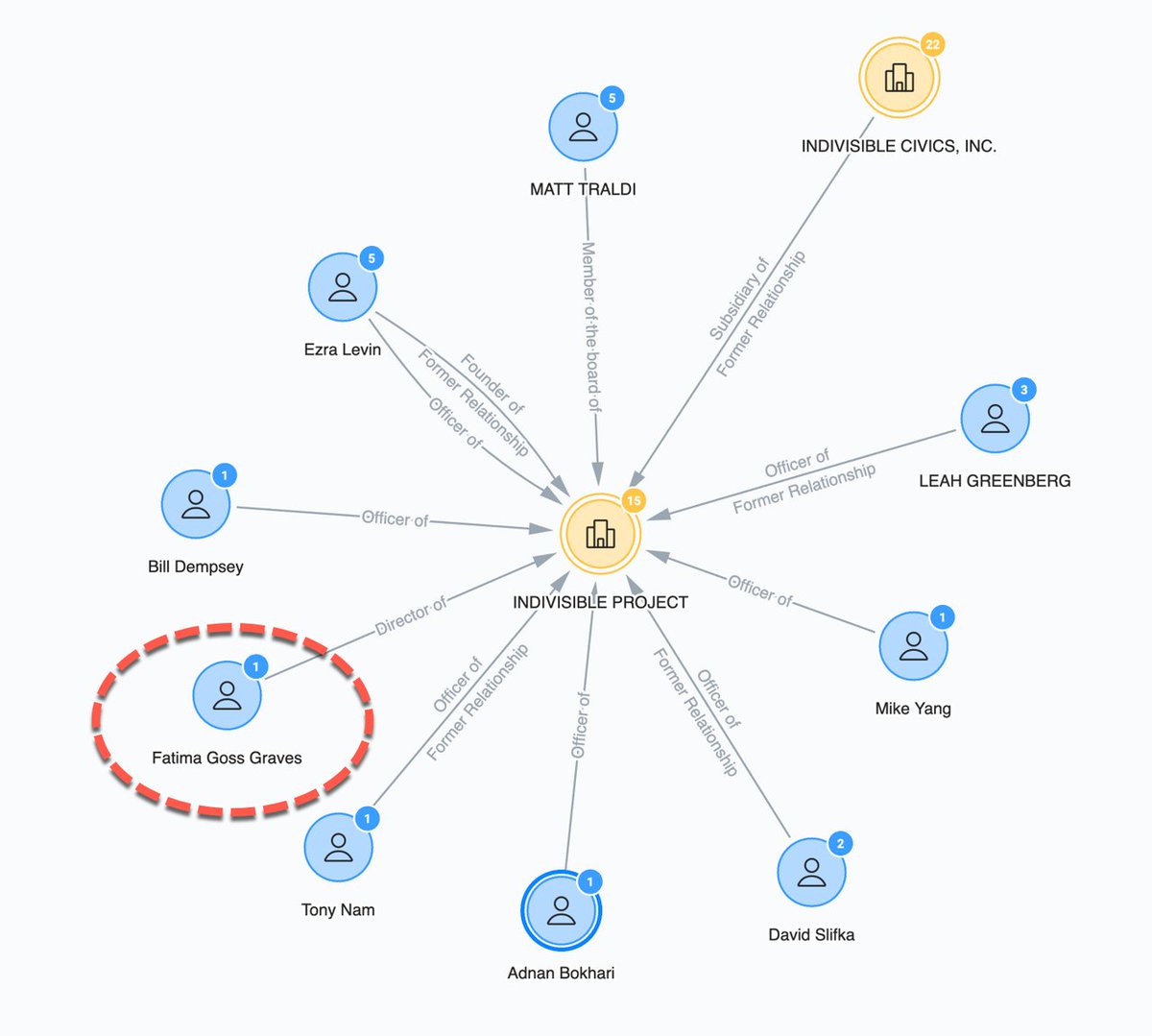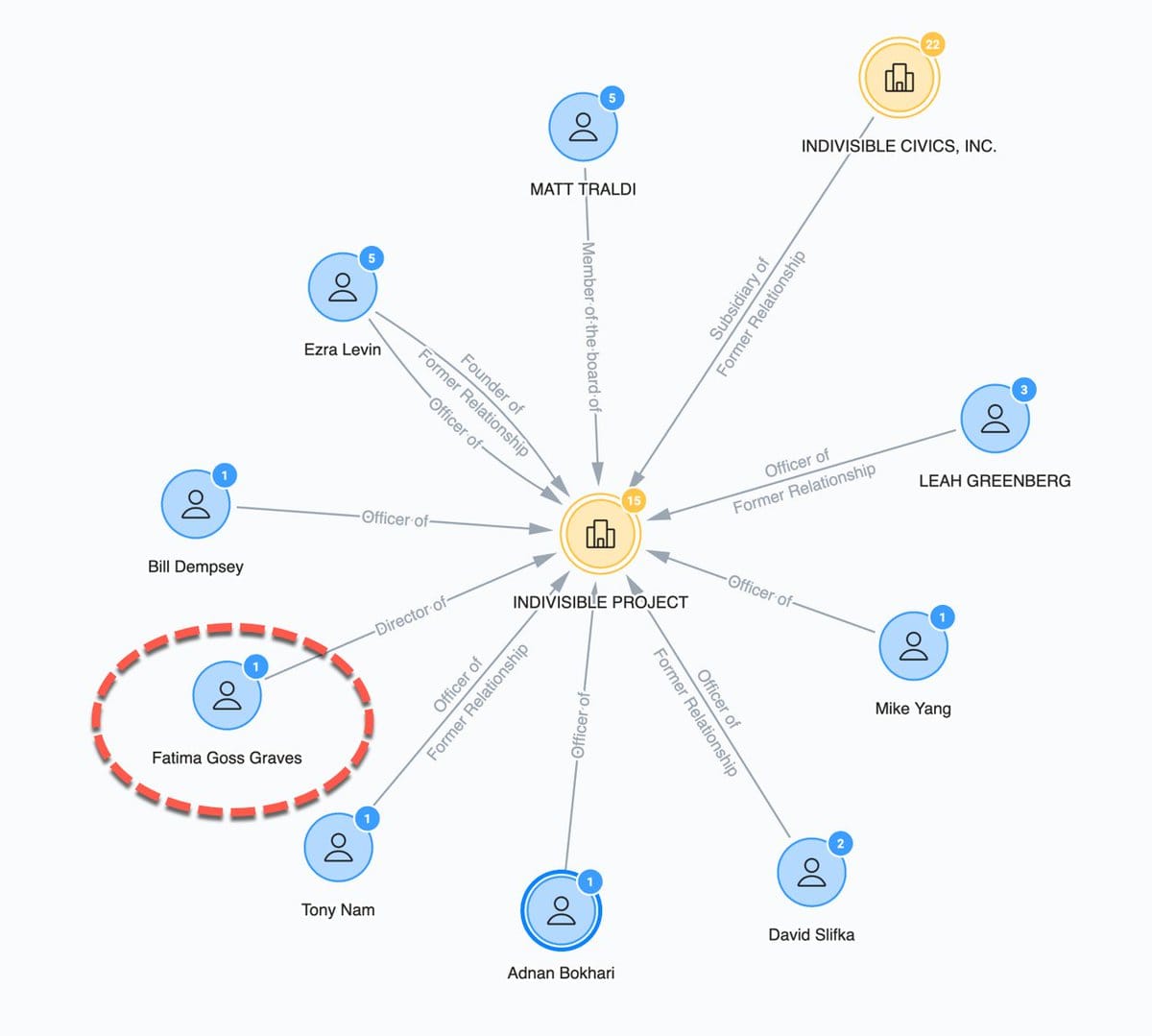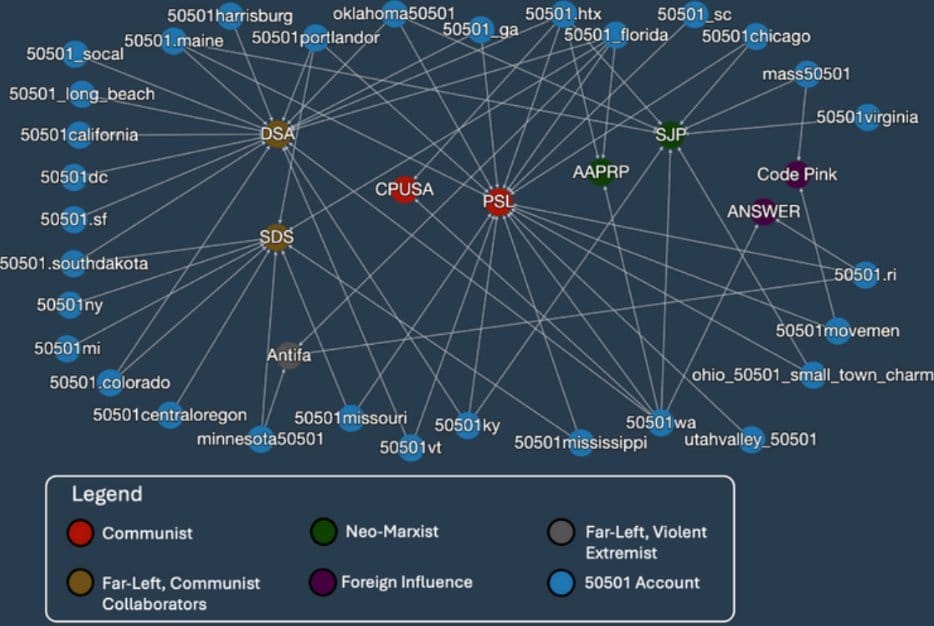"From Soros to Singham: How 'No Kings' Became a Tool for CCP Influence in America
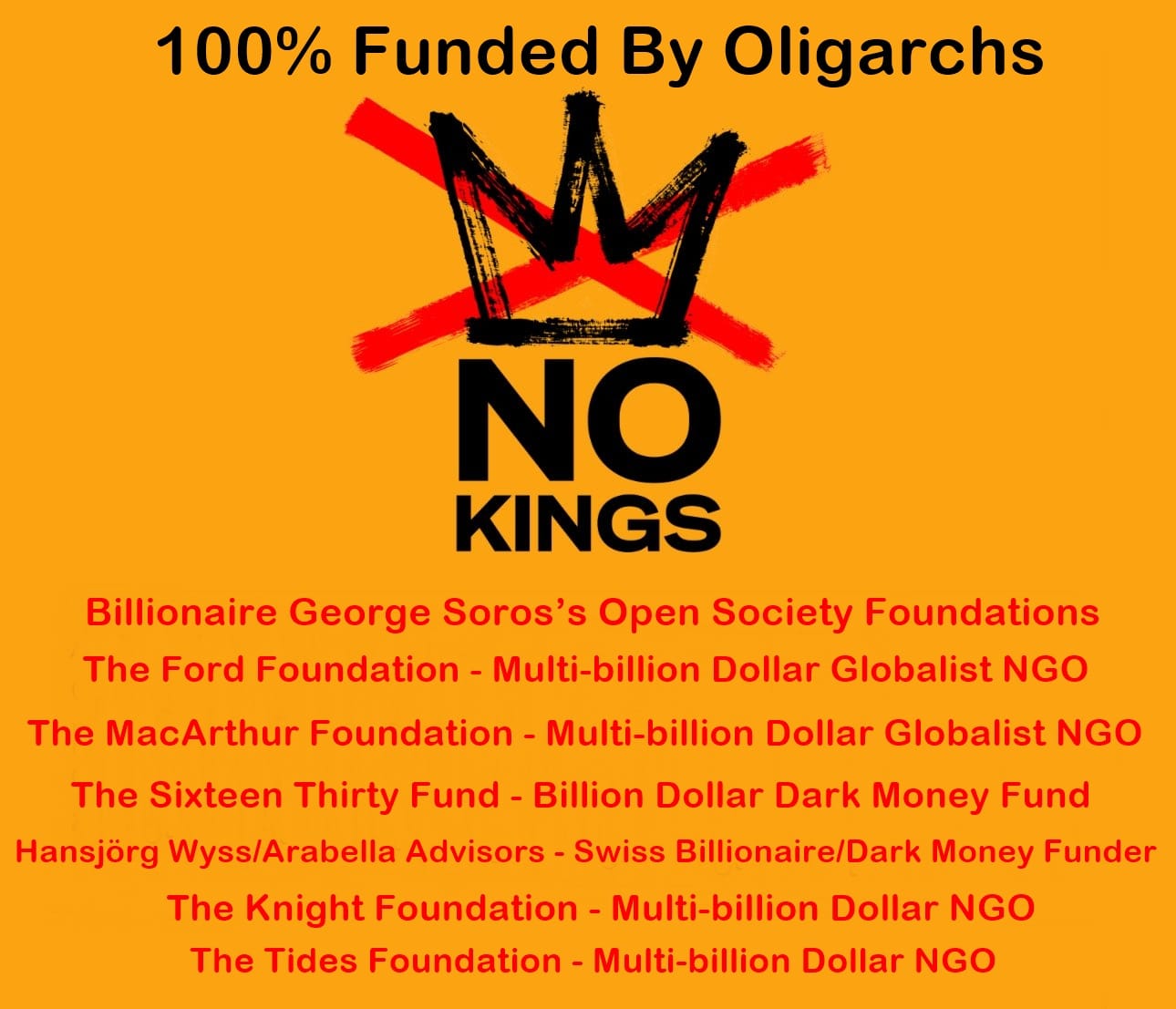
The Revolt That Came With Receipts
There is something peculiarly modern about our current political predicament. We live in an age where the infrastructure of dissent has become so visible, so traceable, so utterly transparent that we can follow the money from billionaire bank accounts to street protests with nothing more than tax filings and LinkedIn profiles. And yet, we persist in pretending that what we're witnessing is organic, spontaneous, grassroots rage.
Consider the curious case of Indivisible, the organization that has positioned itself as the vanguard of resistance to the Trump administration. To hear its founders tell it, Indivisible emerged from pure democratic impulse—ordinary citizens so alarmed by the 2016 election that they simply had to organize. A beautiful story. The kind that makes documentary filmmakers reach for their cameras and foundation program officers reach for their checkbooks..
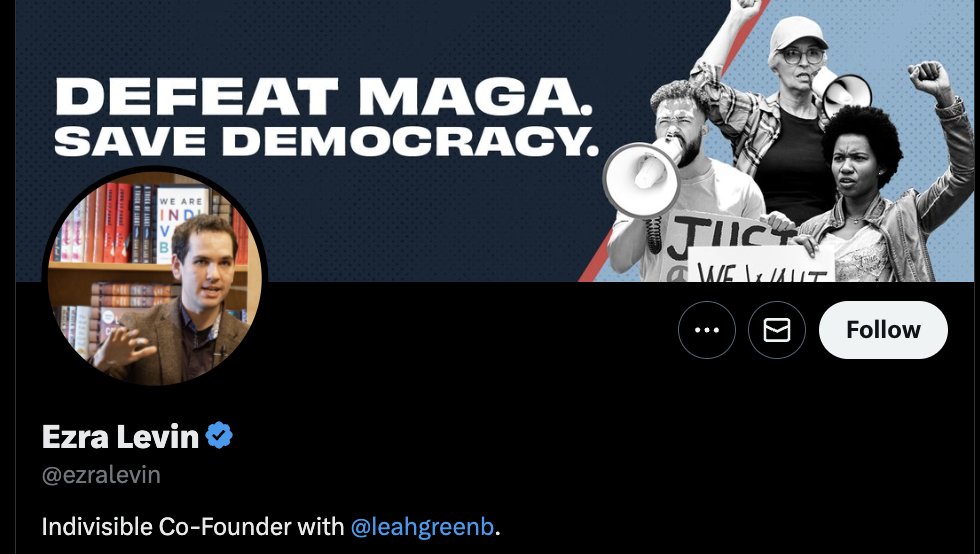
But then you look at the personnel files.
Marielena Hincapié, Indivisible's founding board president, previously ran the National Immigration Law Center. That organization receives funding from George Soros's Open Society Foundations. Heather McGhee, an Indivisible board member, doesn't just receive money from Soros's empire—she sits on the board of Open Society Foundations itself. For good measure, she also holds a seat on the Rockefeller Brothers Fund. One begins to detect a pattern.
Then there's Tom Perriello, who became executive director of OSF in 2018. The same year, rather conveniently, that Indivisible began receiving millions in funding. According to some sources, Perriello also serves on Indivisible's Civics Board, though this particular connection proves difficult to verify with absolute certainty. But even without that final thread, the tapestry is rather clear.
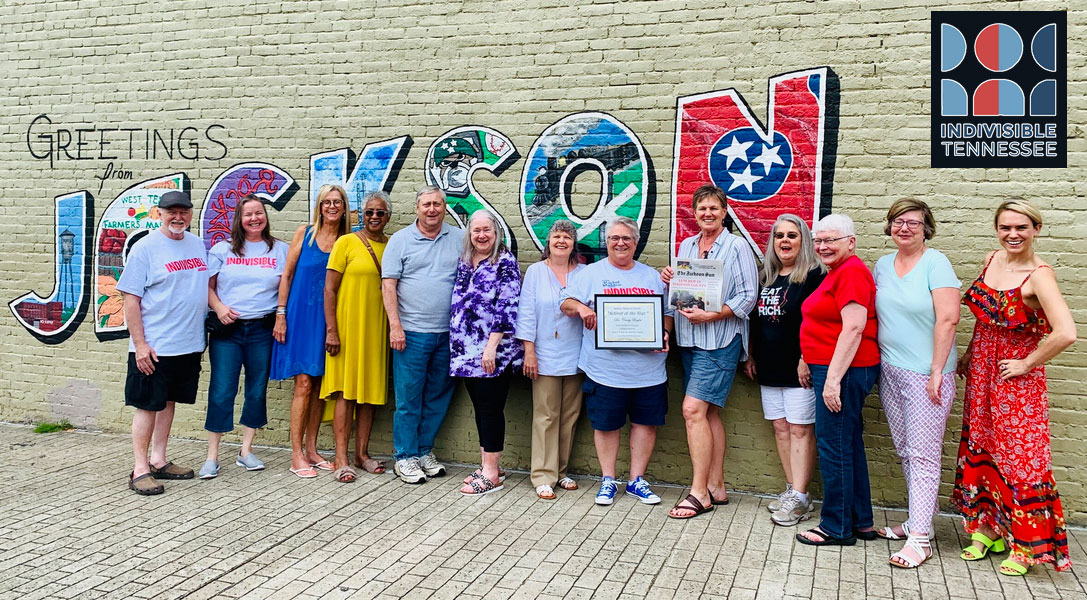
Angel Padilla, Indivisible's former National Policy Director, was recruited directly from the National Immigration Law Center—yes, the same OSF-funded operation. And Leah Greenberg, who co-founded Indivisible, previously worked as an investment manager for Humanity United, an organization established by eBay founder Pierre Omidyar, another billionaire with pronounced views about remaking American politics.
Now, none of this is hidden. These are not secrets whispered in shadowy rooms. They are facts available in tax filings, on organizational websites, in professional biographies. The extraordinary thing is not that the connections exist, but that we're expected to pretend they don't matter.
When you go to the NoKings website, you'll find over a hundred partners listed, many of them familiar and many Soros-backed. They include big names closely tied to the DNC such as Marc Elias' Democracy Forward. pic.twitter.com/MAgygKXQKH
— DataRepublican (small r) (@DataRepublican) October 13, 2025
The Omidyar-to-Soros Pipeline
What we're observing here is something rather more sophisticated than simple corruption or influence-peddling. This is the creation of a parallel political infrastructure, one that operates adjacent to—but crucially independent of—traditional party structures. Greenberg's trajectory is particularly illuminating: she moved from managing one billionaire's political investments to launching what is ostensibly a grassroots movement funded by another billionaire's fortune. It's rather like claiming you've started an independent film after spending a decade at Warner Brothers and then taking a production deal from Universal.
The beauty of this system, if we can call it that, lies in its plausible deniability. Indivisible isn't George Soros. It's merely staffed, funded, and directed by people who have George Soros's money flowing through their professional veins. The distinction, we're told, is important.
But is it?
Twenty Years of "Opening" America
George Soros himself has never been particularly coy about his objectives. Twenty years ago, he declared his mission to "open" the United States—to cleanse it, as he put it, of its attachment to traditions and faith. This wasn't a conspiracy theorist's fever dream or a misquote taken out of context. These were his stated aims.
Since then, billions of dollars have flowed into organizations designed to accomplish precisely that goal. The methodology is sophisticated: you don't simply fund political candidates, though you do that too. You build ecosystem—think tanks to produce the ideas, advocacy groups to push the policies, media organizations to shape the narrative, and activist networks to provide the street-level energy. Each component appears independent, but they're all drawing from the same wells, singing from the same hymn sheet.
It's the same playbook Soros and others have used in Eastern Europe and elsewhere, the sort of orchestrated political pressure that in other contexts gets called "color revolutions." The genius lies in making it look spontaneous. The amateur theatrics of grassroots organizing concealing the professional production values of a well-funded operation.
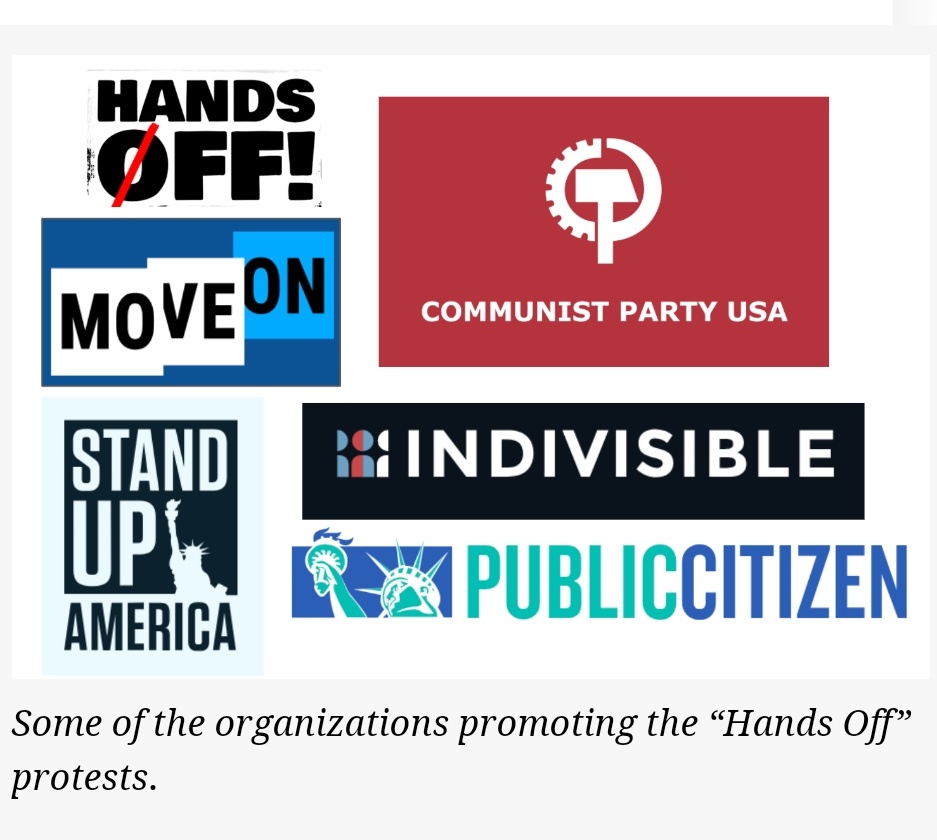
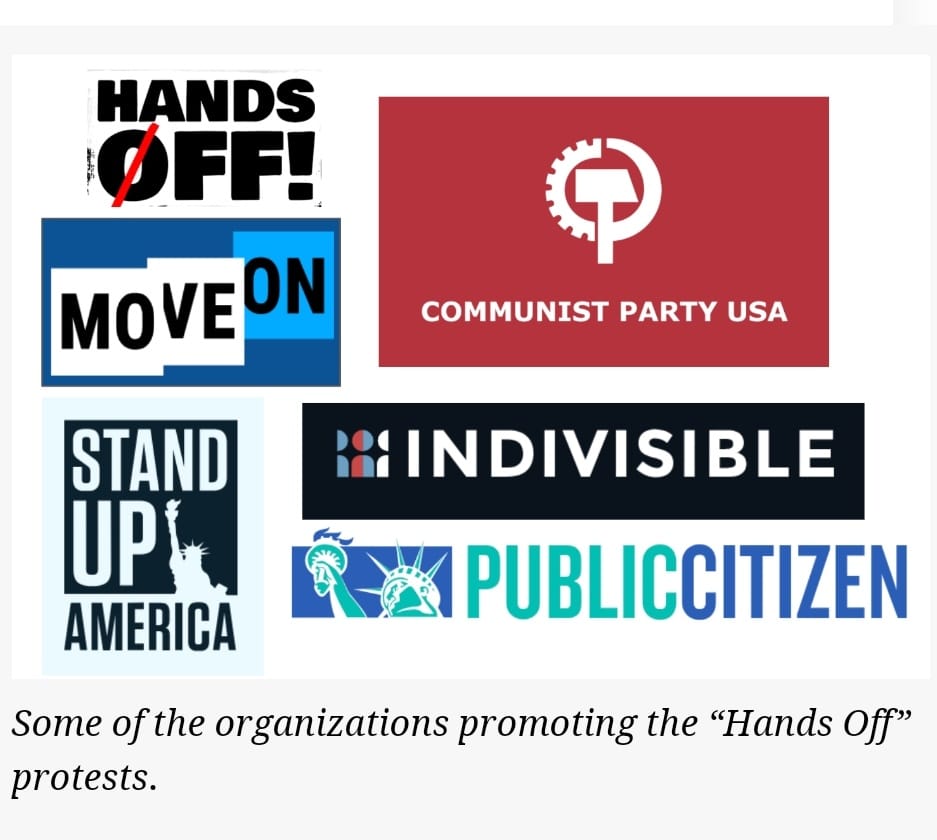
The Question Nobody Wants to Ask
Here's what ought to trouble us, regardless of our political sympathies: What happens to democracy when the infrastructure of dissent is owned and operated by a handful of billionaires?
We've spent years, quite rightly, worrying about wealthy conservative donors and their influence. The Koch brothers became shorthand for everything wrong with money in politics. But somehow, when the money flows from different billionaires toward different causes, we're meant to celebrate it as philanthropy, as civic engagement, as democracy in action.
This is not a defense of the Kochs or any other wealthy political actors on the right. It's an observation that we've developed a rather convenient double standard. Conservative money is corruption; progressive money is activism. One is dark and insidious; the other is enlightened civic participation. The principle appears to be: "Money in politics is bad, unless it's funding causes I support, in which case it's actually rather good."
But money doesn't stop being corrupting simply because we agree with how it's spent.
Just created this spreadsheet, and you should see some familiar names. I'm creating a thread on the founders of Indivisible shortly. pic.twitter.com/BEg4MOfTLg
— DataRepublican (small r) (@DataRepublican) October 13, 2025
The International Dimension
Then there's the matter of the international connections, which ought to concern anyone with even a passing interest in foreign interference in democratic processes. The Oversight Project has documented location data showing travel between key organizers of protest groups and the Chinese consulate, as well as connections to Iran. These aren't vague allegations—they're backed by advertising location data and detailed reports.
Now, perhaps there are innocent explanations for all of this. Perhaps the meetings were purely social, or cultural, or academic. But we might at least pause to ask the questions. We spent years investigating Russian influence operations that involved far less direct contact. The principle, surely, should be consistent: foreign government connections to political organizations deserve scrutiny, regardless of which political tribe those organizations support.
Indivisible removed board members' names from its website after they got called out for organizing violent Trump/Tesla protests.
— Natalie Winters (@nataliegwinters) March 24, 2025
What are they hiding? pic.twitter.com/nglHd7IMv8
What This Tells Us
The Indivisible case study reveals something essential about our current moment. We've created a political system where authenticity is performed, where spontaneity is scripted, where grassroots movements are astroturfed with billionaire money. And we've done this so thoroughly, so completely, that pointing it out is treated as conspiracy mongering rather than simple observation.
The personnel rotation between OSF-funded organizations and Indivisible isn't circumstantial—it's structural. This is how the system works. You train at one Soros-funded organization, gain credibility and connections, then move to another position in the network. Sometimes you launch new organizations that claim independence while drawing on the same funding sources and personnel pool. It's not corruption, exactly. It's infrastructure.
And that's rather the point. We're not talking about brown envelopes and secret payoffs. We're talking about the creation of a permanent political infrastructure that transcends election cycles and party politics. It's there whether Democrats win or lose, whether Trump is president or not. It shapes the boundaries of acceptable discourse, determines which causes get attention and resources, and provides the institutional framework for political action.
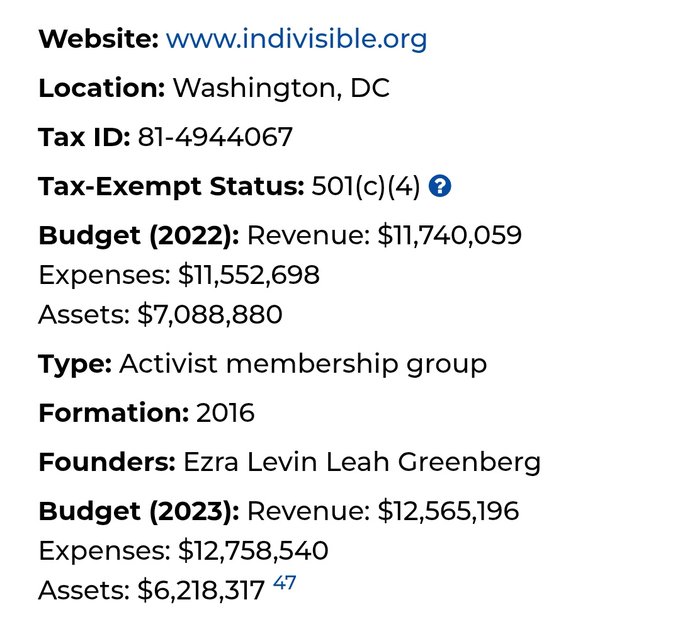
The Uncomfortable Truth
None of this means that everyone involved is acting in bad faith, or that the causes they support are necessarily wrong. Immigration reform might be good policy. Criminal justice reform might be necessary. Climate activism might be urgent. These are separate questions from: Who gets to decide which causes receive billions in funding, which organizations get built, which movements get amplified?
We've become uncomfortable with the basic questions of power, perhaps because asking them might reveal answers we'd rather not contemplate. It's easier to believe in the spontaneous uprising, the organic movement, the authentic voice of the people. The alternative—that our politics are increasingly shaped by competing networks of billionaire-funded organizations—is rather less inspiring.
But inspiring or not, it appears to be the truth. And in politics, as in most things, the truth eventually demands its hearing.
The question before us isn't whether George Soros has a right to spend his money on political causes. He does. The question is whether we're going to be honest about what that spending creates, how it shapes our politics, and what it means for democracy when the infrastructure of dissent becomes just another product funded by concentrated wealth.
The receipts are there. We can read them or ignore them. But we can't pretend they don't exist.
Anti-Musk NGO Behind Color Revolution Against Tesla "Mass Deletes Content Off Website" After Being Exposed | ZeroHedge
— Owen Gregorian (@OwenGregorian) March 26, 2025
Revolutionaries at the Soros-funded nonprofit Indivisible are scrambling to delete webpages after their cover was blown ahead of a planned color revolution… pic.twitter.com/RP5LXJOI9H
